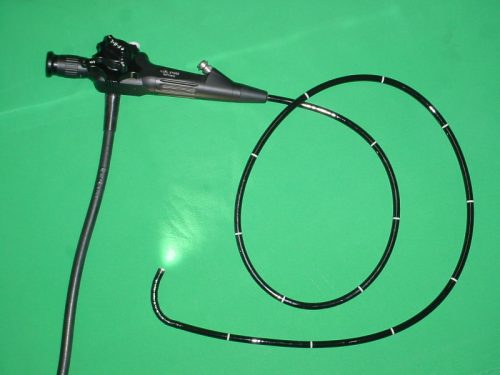What is health? Take a moment to answer that question.
Was that exercise helpful? In particular, do you think that how you understand health would affect your health care choices?
I thought through what health means last Thursday during a follow-up appointment with my oncologist. Going into the visit, I was concerned about the persisting pain at the tumour site in my throat. As is common for throat cancers, that pain radiates to one of my inner ears.

At the visit, an endoscope was threaded into my nose, through my sinuses, and down my throat. (It’s easier than it sounds.) The camera in the scope projected video of the inside of my throat onto a big screen. When I was scoped before radiation, I could see a large, reddish mass that partially occluded my throat: the notorious tumour. But now it’s gone! The flesh was pink, and there wasn’t even a scar.
This is a good result, but it is just one data point. Cancer’s a wily bastard, and it still has ways to kill me. But it’s a data point nevertheless, which raises the odds of my long-term survival.
But what about the pain? “Well,” said my oncologist, “that may go away over time.” Or. It may not. “It may not,” my doctor agreed. Perhaps the tumour — or the radiation treatment — inflicted damage to my nerves that won’t resolve.
This brings us to the question of what health is. In this case, how much does pain count in my health choices? I expect that everyone will agree that everything else being equal; health includes the expectation of a long life in which you feel good and function well in your life tasks. OK, but what if life doesn’t offer you the choice of maximizing all three?
My oncologist and I get on well, but we have disagreed several times about the best course of care. He recommended that I should have radiation and chemotherapy, but I chose only the former. And he felt that I was not taking enough pain medication. Specifically, he thought that I should start hydromorphone (Dilaudid, an opioid) earlier than I wanted to and that I should take higher doses to get through treatment.
I’ll call this the hedonic view of health: what matters most is living a long time and feeling good.
But I wanted to maximize functioning. I declined cisplatin (a chemotherapeutic drug) because of concern about the risk of persistent cognitive and psychiatric harms. Cisplatin is, after all, a poison that affects your entire body, including the brain, and not just the tumour. By refusing chemotherapy, however, I accepted a reduction in my life expectancy. I also took as little Dilaudid as I could manage because it increased the listlessness I felt because of radiation. That means that I suffered more than I had to. But I was (at least partially) awake and got a few things done.
Let’s call this the capability view of health: health is the ability to do stuff. What I want from life are opportunities to be engaged in attempting hard things. So, a longer life is great, but not if it comes at too high a cost in capabilities. The same goes for being pain-free. Pain is a signal in challenging efforts, potentially distracting, potentially useful. I’ll suppress it with drugs if it gets disabling. Short of that, however, I’d rather attend to pain and see if I can learn something from it, and steer a better course.
I’m not arguing for this view of life. Excessive focus on your own capabilities at the expense of others’ needs is a vice. My oncologist’s views probably reflect what most of his patients want, and what they want has the same moral value as what I want.
My point, however, is that health is not just an objective physiological state. It’s how we value those states. In life and death conversations — and cancer prompts those — doctors have to listen to what patients want. They need to give them the necessary information to understand the tradeoffs life offers them concerning those goals.

